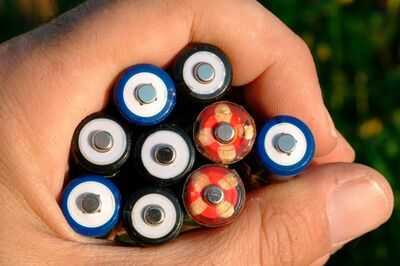
Planning for emergencies can be likened to taking out insurance – it's a necessary precaution that you hope will never come into play. The UK government has rolled out a comprehensive set of guidelines for households nationwide, detailing the steps everyone should take to brace themselves for any conceivable eventuality, including the accumulation of vital supplies like batteries.
Although the UK's Prepare website has been operational for some time, this week saw ministers underline the importance of societal readiness in the face of potential threats, such as 'war on our doorstep', as well as the risks posed by cyber attacks, extreme weather conditions, or even another pandemic outbreak.
READ MORE: Pet owners rush to claim free flea treatment as UK heatwave sees pests rise
The national security strategy released on Tuesday conveyed the stark reality that the UK is now navigating "an era in which we face confrontation with those who are threatening our security".
Ministers are amplifying their calls for society at large to bolster its resilience and are planning a comprehensive cross-government drill to test crisis response capabilities.
The government's Prepare.gov.uk website is dedicated to ensuring that as many homes as possible are equipped to handle emergencies ranging from severe weather events and power outages to significant accidents or 'infrastructure failure', as well as deliberate attacks.
Amongst its crucial recommendations, the government is advising households to stockpile essential items, including batteries for radios, backup mobile phone batteries, and battery power for any necessary medical devices.
The UK Prepare website is sounding the alarm: "Get prepared for emergencies. Emergencies happen every day in the UK and across the world. They can be caused by severe weather or other natural hazards, by deliberate actions, or as a result of accidents or infrastructure failure."
The site warns: "They can be events that happen quickly and are over in a few hours, or they can develop and continue over the course of several days, months, or sometimes even longer."
It advises the public to: "Consider what supplies you and your household might need during an emergency lasting a few days, such as a power cut or water outage, or situations where you are advised to stay at home or to leave your home (evacuate) for safety reasons."
Tips for readiness include: "It can be helpful to keep these items in one place in your home and ideally somewhere easy to find if the lights aren't working - if you are escaping your house due to a fire you should not take anything with you at all.
"You could consider keeping items you might need to take with you if asked to leave your home quickly in a spare bag - you might hear some people call this a 'grab bag'."
In addition to recommending the preparation of documents, the testing of smoke alarms, and conversing with neighbours, the government strongly suggests stocking up on batteries and vital battery-powered equipment, reports the Express.
The guidance also states: "Put together an emergency kit of items at home. This could include:
"Battery or wind-up torch - torches are safer than candles. Portable power bank for charging your mobile phone. Battery or wind-up radio to get updates during a power cut - a car radio can be used, however in severe weather it might be safer to stay inside.
"Spare batteries for torches and radio and a backup battery for any medical equipment you rely on."
In addition, the government advises households to accumulate supplies of tinned food, bottled water and baby essentials, if necessary.
It further suggests that you can gradually build up your stockpile: "Rather than buying all the items at once, you could just add to your emergency kit when you are able and build it up over time."